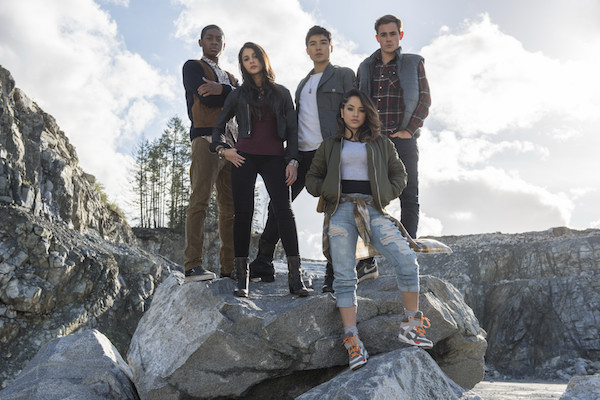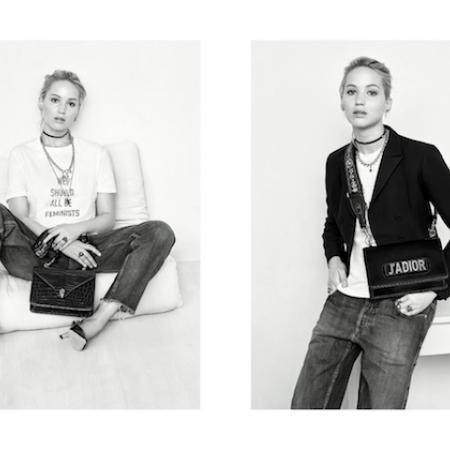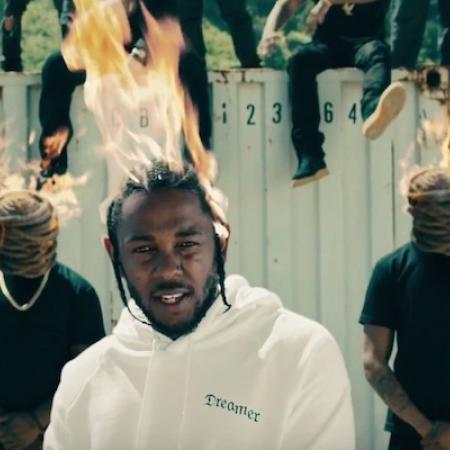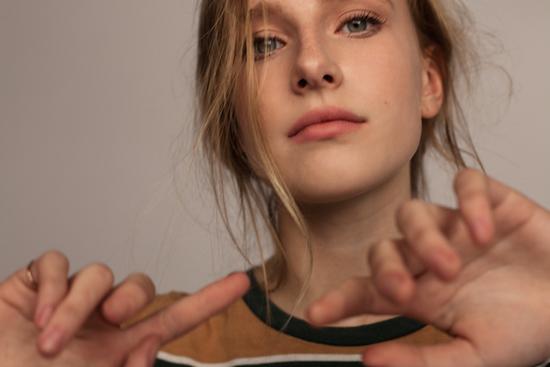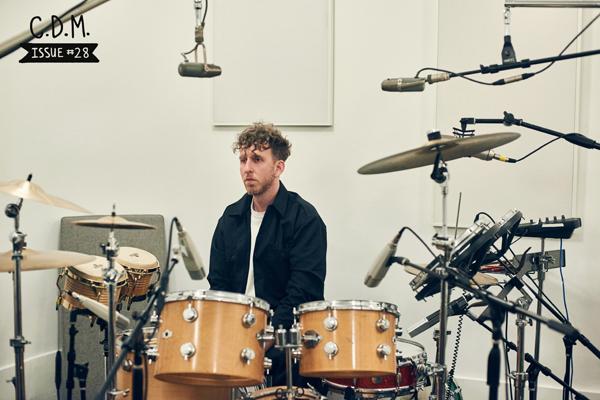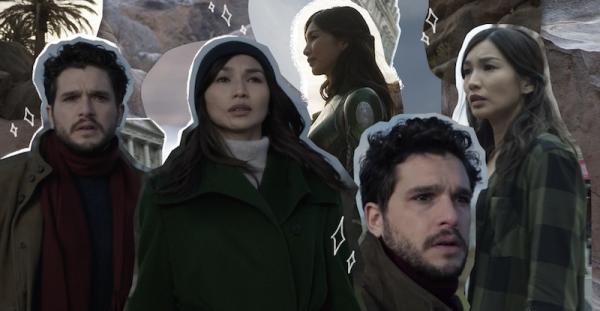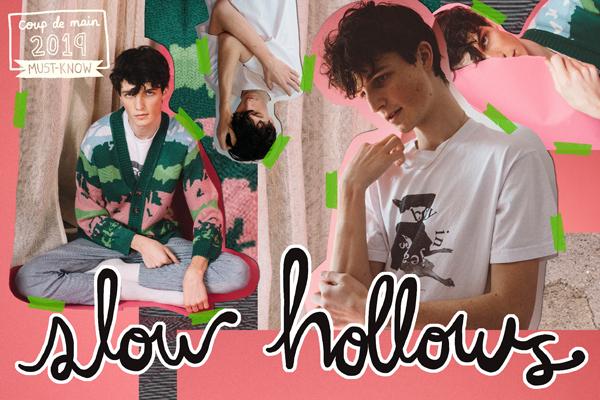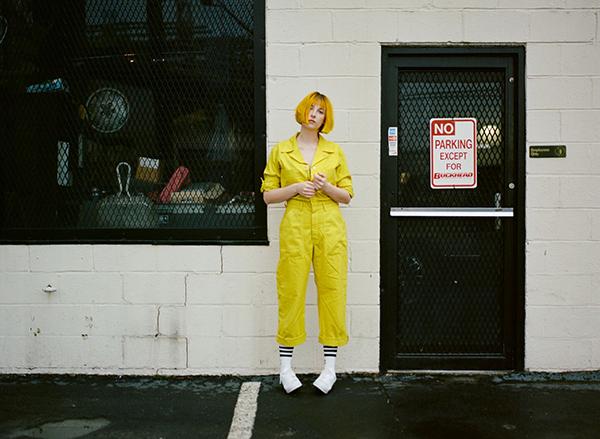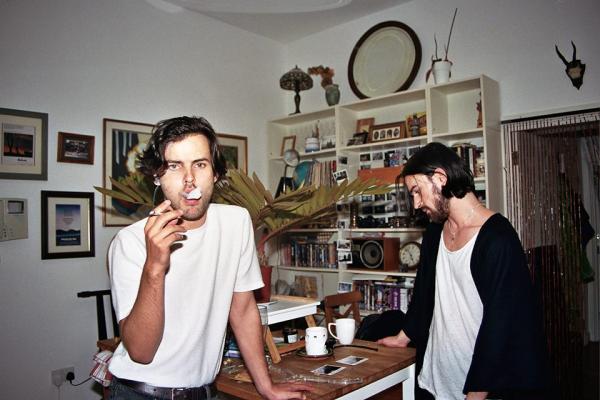The new ‘Power Rangers’ film (out in NZ cinemas now) focusses on uniting together to beat a common evil - a pertinent theme seen in film nowadays. It’s perhaps the most progressive superhero film of recent times - with RJ Cyler playing a character on the autistic spectrum, and Becky G playing an openly queer character - the film’s characters highlight an important step forward in diversity.
We spoke to each of the rangers ahead of the film’s release - Becky G, Naomi Scott, RJ Cyler, Ludi Lin - as well as the director of ‘Power Rangers’, Dean Israelite…
COUP DE MAIN: You’re both singers as well as actors - can you comment on how one thing informs the other, at all, and if you bonded, being both performers at all?
NAOMI SCOTT: We did bond a lot over that. Becky’s signed, and she’s got a bit of a history with that - millions of fans around the world.
BECKY G: On a passion level. It was never like, ‘Oh, we have to write amazing songs together.’ As a creative person, some people are like, ‘Oh, we have to be in the studio from X, Y, Z, and make amazing music.’ It was like, no, ‘Check out this new song,’ and her introducing me to the UK underground scene. I was so fascinated, I had never really listened to music like that, so I was like, ‘Yo, thanks for showing me those people - Shakka, Stormzy - all that stuff, I had never heard of before.' So we definitely connected on that, and at least for myself, having been in the music industry for a while now, and having toured, and dealt with the pressures of growing up in the public eye, I think the whole concept of ‘the show must go on’ had a lot to do with me learning how to act. When you’re on tour, and when you’re doing promo, it doesn’t matter if you’re tired, it doesn’t matter if you’re going through heartbreak, it doesn’t matter if you’re starving, it doesn’t matter if you’re having family issues - you have to do your job, and you have to put on the show. The first time I had ever gotten my heart broken, I was going on tour, and it was the opening song, and I was like <cries> and I had to go on stage and smile. You put on the show and you do it - and you feel proud afterwards, but it is sometimes like acting.
NAOMI: Just like acting.
BECKY: So when it came to acting, I thought I could give it a shot.
NAOMI: For me, I’m an independent artist - I do everything--
BECKY: By yourself!
NAOMI: By myself.
BECKY: Amazingly, by the way.
NAOMI: Thank you, very much. I try. The stage that I’m at when we finish shooting, I’ve been working on music. It’s great because I’m able to do everything myself, and to control everything as an independent artist. We always share things - 'check this out, new music.'
CDM: Did you watch the show as kids?
NAOMI: This is the weird thing - I don’t remember specifically watching the shows. I’m sure I did, but I do remember very vividly, playing Power Rangers with my brother - my two-year-older brother. I remember we’d stand on opposite sides of the room, on the sofa, and we’d go, “Power Rangers! <sings ‘Power Rangers’ theme>” and we’d run, and fight. And that, my friends, is my memory of the ‘Power Rangers’ growing up. But it shows, that even if you didn’t watch the shows, you wanted to be one - or it had some sort of effect on you, because it was so iconic.
BECKY: It was the whole concept of being a superhero in general, I think that really resonates with kids because you’re like, ‘Wow, it’s this amazing, extraordinary role-model to look up to,’ that has all these special abilities, and I think what’s going to make this ‘Power Rangers’ so special is that it shows it can be anyone. Personally growing up, I was a fan of ‘Power Rangers’. I didn’t have the best TV situation, lower middle-class family, we had the little buddy ear antennas - so when you got something, you’d leave it. We left it, and one of the channels that we’d always get was this Japanese channel, and I couldn’t understand anything, but the original ‘Power Rangers’ would always come on before I’d head over to school. I thought it was the coolest thing, all these bright colours, the action, the flips, explosions, fireworks! I was five, so it was the coolest thing ever. Later on, I got introducing to the 'Mighty Morphin’ Power Rangers' and then I was seeing the Yellow Ranger as a girl for the first time, and I was like, ‘Oh my god, this is so cool - I can be a Power Ranger!’ That was my childhood thing.
RJ CYLER: Me and Ludi more than Dacre. I used to watch the 1993 movie a lot with my older brothers - we got a lot of spankings behind these movies, trying to do ‘Power Rangers’-like activities. It’s all cool.
CDM: It was kinda controversial at the time - kids were trying to do back-flips!
RJ: <mockingly> “My kids love your show! It’s dangerous what they do after they watch it though.”
CDM: The film does quite a good job of the teen angst of it - ‘The Breakfast Club’ influence is pretty felt. Did you take any inspiration from any films about teenagers, in terms of how this was going to explore a slightly more realistic teenager?
RJ: It was kinda easy for us to play teenagers, because we are teenagers - it wasn’t too much far studying that we had to do. It was, ‘Hey, look in the mirror in the morning and tell me what you’d do in that situation.’ <laughs>
LUDI LIN: I think what’s funny though, the more I think about it, the more I feel like everyone on the planet - no matter how old you are - you’re really just a kid pretending. Look at the things that are going on in the world right now, you look at it and you go, ‘You’re just a kid, what are you talking about?’ <laughs> He’s in this expensive suit, and he’s still talking like an immature five-year-old. For myself, just to make sure I was right, before the shoot started, I went back to Vancouver, I went to high school there. I went back to my high school and sat outside the office, just to get the feeling in, and then a couple of high school kids came by and they asked me if I was a new student. I put on this New York accent and was like, ‘Oh yeah, I’m just here from New York. What’s the school like? What’s going on in the cafeteria? Is the food alright?’ They accepted me and started telling me about this school - and it wasn’t until two of my old teachers came by and were like, ‘Ludi? Have you failed that badly?' <laughs> It was a cool experience.
CDM: RJ, your character is interesting - slightly innovative in this genre to have a character to be on the spectrum. Was that something you knew a lot about going into this role?
RJ: I was familiar with it, mostly because I have a friend Andre, who’s also on the spectrum, and he was really close to us in high school because we were in the same band programme together. He taught me a lot of stuff that I didn’t know about algebra, that I couldn’t grab from a teacher - Andre taught me in like 35 minutes. His mind works that quickly. To people that are on the outside, we just see it as them having a moment, because we don’t understand, but when you just sit down and talk to him - literally some of the smartest minds I’ve ever encountered and come into contact with… It’s just us not being willing to open our mouths and learn something new. So I called Andre, and I was like, ‘Don’t freak out, but I might be playing a Power Ranger and I might need your help on something.’ He was like, ‘Just tell me the truth. Are you a Power Ranger or not?’ I was like, ‘Okay, yeah.’ He freaked out for 35 seconds and then he got down to the nitty gritty, and that was really cool, to go back to a high school relationship and be able to talk and need his help in this. It felt really good to be able to learn new stuff about a situation, and a process that I knew nothing about.
CDM: We’re living in an era now where anything genre-based that has a big fan-base, there’s so much scrutiny around what you change, and adapt. This film seems remarkably faithful to the material considering how extreme it is in a lot of ways. Did you worry about satisfying the fans, while also making an updated version of the film? Did you ever feel constrained?
DEAN ISRAELITE: I didn’t feel constrained. Maybe I just didn't want to worry about it, so I didn’t worry about it, because I knew that the movie needed to be a reimagining, it needed to be a reinvention. I focused on that, and felt like if we did that properly, everything else would fall into place. We worked so closely with everyone at Saban, that if we were ever steering way too far, they would reign us in a little bit - but never in a bad way. You could use that limitation to come up with something great for it. I was a fan, as a kid, so I felt like I had a good true north about ultimately what the spirit of the movie needed to be. I thought if the movie as a whole retained the spirit of what was important about the show, then we had a lot of latitude - then you’re retaining the heart of something, and so everything else is sort of cosmetic.
CDM: Were you working on it when the fan-movie came out? [Joseph Kahn's film, 2015 fan-film].
DEAN: That came out before I got the script. I saw it, and it is obviously the DC version of what ‘Power Rangers’ would be, which is of course interesting - and speaks to a specific type of ‘Power Ranger’ fan. To me, that’s not really the kind of movie I wanted to make, and when I think back on what I remember feeling as a kid and trying to retain that, it’s so diametrically opposed to what was meaningful to me with the show - feelings of power, and heart. There’s a buoyancy about it, and a love and a joy, beneath things that we’ve put in that feel gritty, and real, and painful at times. To me, that’s not what I remembered from the show - so it was never something I wanted to take the brand to. It wasn’t so much about Haim Saban saying, ‘This is what it needs to be,’ from the very first moment I read the first draft, I always wanted it to be tonally what it is now.
CDM: I’m sure you’re aware the TV show is filmed in New Zealand. Was there ever any point of contention for shooting the film down there?
DEAN: I wanted to actually shoot in either Australia, New Zealand, or South Africa - because I thought that we’d be able to find the small town, Angel Grove vibe, and then also outside of the town, the landscape that we needed. We got location photos from all of those places, but logistically it felt better to go to Vancouver - and actually Vancouver and British Columbia has all of that as well. We went down to Wellington to Weta Workshop, and as we were driving around, we were like, ‘We could have done this here!’ Although the cars and the roads are too small, it wouldn’t have felt true to America.
CDM: You can really feel ‘The Breakfast Club’ feel to the film - was that something that you talked to the cast about, that you wanted to reference? Was it something they were on board with?
DEAN: Totally. I actually sent them a list of movies to watch before they came to pre-production, and obviously ‘The Breakfast Club’ was the top of the list. We auditioned with some scenes from ‘The Breakfast Club’ as the script was still being written, and it was always top of mind. I referenced that, I referenced ’Stand By Me’. There’s stuff that’s even more ‘The Breakfast Club’ that we actually cut, because it feels too… when you’re being inspired by films like that, you’re also scared to take too much from it.
‘Power Rangers’ is in New Zealand cinemas now - watch the trailer below…
P.S. Thanks to our friend Dominic Corry at The Good In Films for doing this interview for us - check his website out here!


